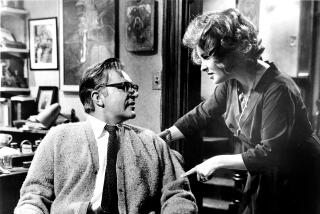The Hogarth Letters: introduction by Hermione Lee (University of Georgia: $20; 349 pp.)
Early in the 1930s, Virginia and Leonard Woolf asked 12 writers to compose letters to whomever they wished, fictional or actual persons, the letters to be published as pamphlets and eventually to be gathered into a volume for the Hogarth Press. “The Hogarth Letters” never fared particularly well, even in England. Here in America, Harcourt Brace took the first three, issuing them individually, and by March, 1932, had sold only 125 copies.
Today the list of letter writers appears uneven, and several of their names remain known only to specialists. E. M. Forster’s “A letter to Madan Blanchard,” reprinted in “Two Cheers for Democracy,” is the most widely read and is still a pertinent denunciation of Empire. Virginia Woolf herself found Viscount Cecil’s “A Letter to an M.P. on Disarmament,” like L. A. G. Strong’s letter to William Butler Yeats, “d----d dull.” She also described Louis Golding, who addressed himself to Hitler on anti-Semitism, as “a little horror” with “a spotted soul.” Her own “A Letter to a Young Poet,” in which she advised her correspondent not to publish before age 30, was answered by Peter Quennell, who explained to Mrs. Woolf why this was impossible. Rosamond Lehmann contributed a lyric, impressionistic piece addressed to “a sister,” and Rebecca West’s letter to “a grandfather,” like most of her work, would have benefited from stringent editing. For the rest, Raymond Mortimer is embarrassingly condescending in patiently instructing one “Harriet” on how to look at French painters; Hugh Walpole is pompous in his remarks to “a modern novelist”; J. C. Harwick anticipates problems for the future of the Anglican Church in writing to “an archbishop,” and Francis Birrell, in his “A Letter From a Black Sheep” still reads entertainingly in his comments on British homebound smugness.
Read as a unit, “The Hogarth Letters” reflects Bloomsbury in its most characteristic attitudes, ranging from responsible and acute concern over current issues to snobbish sensitivity over whether one is oneself truly “top-drawer,” no matter whom one is favoring with one’s attention.
More to Read
Sign up for our Book Club newsletter
Get the latest news, events and more from the Los Angeles Times Book Club, and help us get L.A. reading and talking.
You may occasionally receive promotional content from the Los Angeles Times.







